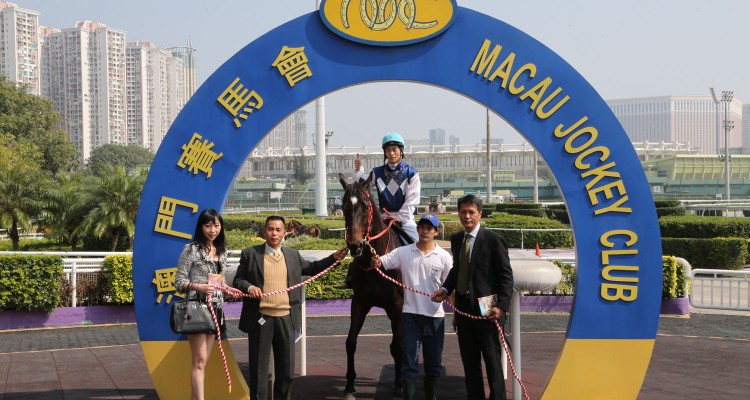Although prospects for Macau’s dog racing enthusiasts may not be bright, the Macau Jockey Club & Racing Complex (MJC) seems to be positioning for a rebirth of the horse racing industry in the former Portuguese enclave. Business Daily of Macau reports that Macau Horse Racing Co. Ltd, who has held a monopoly on horse racing in the city since 1989 (1978 under previous consortium) will announce new strategies for the racetrack in the new season which begins in September and runs through August 2017.
Angela Leong On Kei, vice chair of Macau Horse Racing, and Executive Director of SJM Holdings, talked with reporters Sunday telling them that the ongoing declines in revenue at the track are the result of the economic environment of the SAR, according to Teledifusão de Macau, a local television and radio broadcaster.
The Macau Jockey Club has not posted an annual profit since 2005. The first U.S. owned casino, Sands Macau, opened in 2004. The entire Macau economy has been on a downturn recently with 24 straight months of declining gross gaming revenue when compared to revenues one year before. By January 2016 about $US130 billion in market value had been lost over the previous 24 months. While nobody notable expects a dramatic or immediate return to the GGR of $US45 billion seen in Macau’s peak year of 2013, there are signs that the market is stabilizing and may return to growth in 2017.
It is unclear whether the rising tide would float all ships, however, as animal sports such as horse racing have seen a global decline with the advent of integrated resorts and the proliferation of casinos outside of tourist-centric destinations like Macau or Las Vegas. As noted, Macau Jockey Club’s revenues have continued to decline, year on year since the opening of Sands Macau. In 2015 total revenues for the Club were down almost 60 percent from the previous year.
Although the MJC is still able to attract visitors with their Triple Crown series and the Hong Kong Macau Interport, last year a cadre of members complained that there are not enough overall events and that some Class 1 horses are not able to race for months, rendering them unable to clock a peak performance when they do get to race. Some also complained of sub-standard facilities, noting that a Macau Derby Winner had been injured when part of the ceiling in his stable collapsed.
Ms. Leong told reporters Sunday that although, “we haven’t come up with a certain proposal,” the company has told MJC’s chief executive, Thomas Li Chu Kwan, to be more innovative and to consider introducing, “more diversified offers to improve the revenues,” Ms. Leong said.
Many racetracks in other regions have gone out of business. In the U.S. some have been able to stay open by attracting better trainers, jockeys, and horses as well as increased purses by being subsidized by attached casinos, with the resultant facilities being known as “racinos”. Some U.S. jurisdictions go so far as to levy taxes on un-associated casino properties to subsidize the animal sports, with varying degrees of success. This is usually achieved by effectively lobbying legislators to convince them that horse racing has historic and cultural value, with less focus on the economy of racing.
Last year, Macau Horse Racing’s 10 year contract expired after a decade of business losses. A new 2-year extension was granted with the current contract expiring August 31, 2017. Animal rights groups complained, claiming that the concession should not be granted without improved conditions for the animals there. Albano Martins, president of Anima | Society for the Protection of Animals Macau, said at the time, “The stables are very badly managed, everything is dirty, and the retired animals have nowhere to go. They can be stuck in the stable for five months and never go outside.”
In related news, Gaming Inspection and Coordination Bureau director, Paulo Martins Chan, noted that the government will decide by year’s end whether or not to renew the existing concession for Macau (Yat Yuen) Canidrome. That facility has been under fire for years for alleged mistreatment of Greyhound racing dogs. According to local media, Mr. Chan said the government has received the results of a study requested by the University of Macau “on the importance and influence of the Canidrome on the territory as a World Centre for Tourism and Leisure” commissioned more than a year ago.
Mr. Chan also told reporters Sunday that the government is considering all opinions on the matter and that a decision will be made before the Canidrome’s license expires at the end of the year. Macau Business Daily reports that Angela Leong On Kei, managing director of the Canidrome, has stated that SJM would cooperate with the decision.


